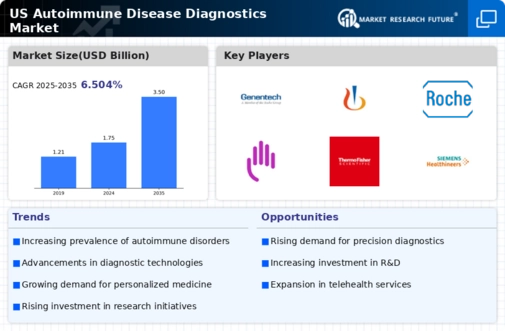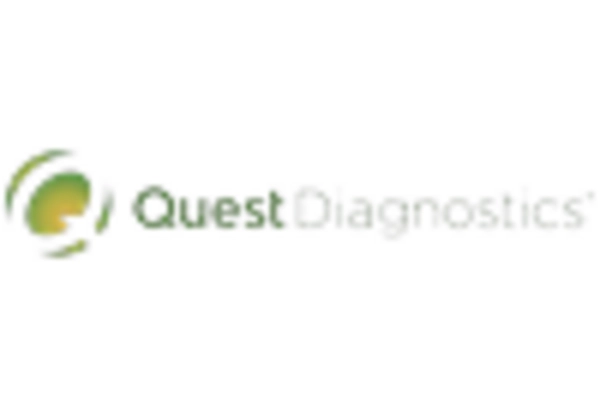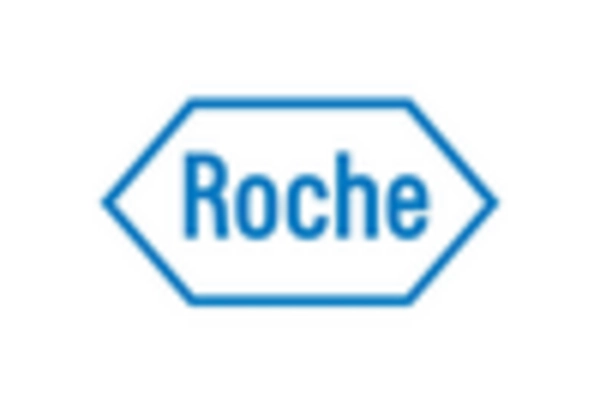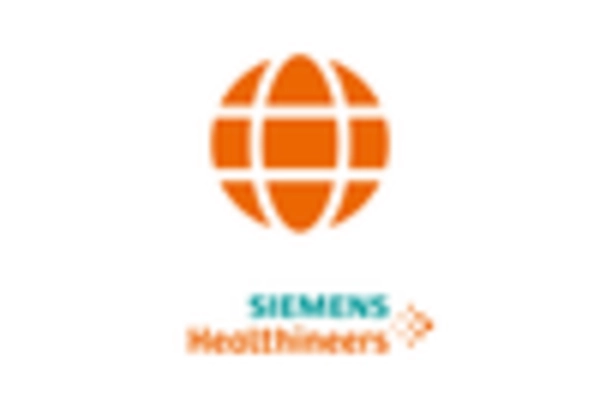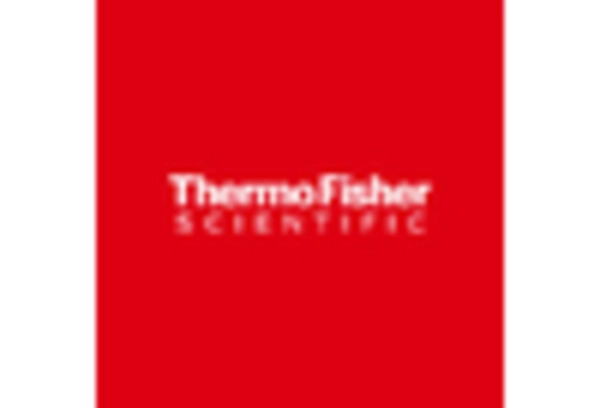Advancements in Biomarker Discovery
The autoimmune disease-diagnostics market is significantly influenced by advancements in biomarker discovery. The identification of specific biomarkers associated with various autoimmune diseases enhances diagnostic accuracy and enables personalized treatment approaches. Recent studies have shown that utilizing biomarkers can improve diagnostic sensitivity by up to 30%, which is crucial for early intervention. As research institutions and biotechnology companies invest in biomarker research, the market is likely to witness a surge in novel diagnostic tests. This trend not only supports the development of targeted therapies but also aligns with the growing emphasis on precision medicine in the healthcare landscape.
Rising Consumer Awareness and Education
The autoimmune disease-diagnostics market is positively impacted by rising consumer awareness and education regarding autoimmune disorders. As patients become more informed about their health, they are more likely to seek diagnostic testing for potential autoimmune conditions. Educational campaigns and advocacy groups play a crucial role in disseminating information, leading to increased testing rates. Surveys indicate that 60% of individuals are now aware of the symptoms associated with autoimmune diseases, prompting them to consult healthcare professionals. This heightened awareness is expected to drive demand for diagnostic services, thereby contributing to the growth of the autoimmune disease-diagnostics market.
Growing Demand for Point-of-Care Testing
The autoimmune disease-diagnostics market is witnessing a shift towards point-of-care testing (POCT), driven by the need for rapid and convenient diagnostic solutions. Patients and healthcare providers increasingly prefer tests that can be conducted at the point of care, reducing the time between diagnosis and treatment initiation. The market for POCT in autoimmune diseases is projected to grow at a CAGR of 15% over the next five years. This trend reflects a broader movement towards decentralized healthcare, where accessibility and efficiency are prioritized. Consequently, the demand for innovative POCT solutions is likely to shape the future of the autoimmune disease-diagnostics market.
Rising Prevalence of Autoimmune Disorders
The autoimmune disease-diagnostics market is experiencing growth due to the increasing prevalence of autoimmune disorders in the US. Conditions such as rheumatoid arthritis, lupus, and multiple sclerosis are becoming more common, affecting millions of individuals. According to the National Institutes of Health, approximately 24 million Americans are currently diagnosed with autoimmune diseases. This rising incidence necessitates advanced diagnostic tools to ensure timely and accurate detection, thereby driving demand within the autoimmune disease-diagnostics market. As healthcare providers seek to improve patient outcomes, the need for innovative diagnostic solutions becomes paramount, indicating a robust market potential.
Increased Investment in Healthcare Infrastructure
The autoimmune disease-diagnostics market benefits from increased investment in healthcare infrastructure across the US. Government initiatives and private sector funding are directed towards enhancing laboratory capabilities and expanding access to diagnostic services. For instance, the US government allocated approximately $2 billion in 2025 to improve diagnostic facilities and promote research in autoimmune diseases. This financial support fosters innovation and encourages the development of advanced diagnostic technologies. As healthcare systems evolve, the availability of state-of-the-art diagnostic tools is expected to rise, further propelling the growth of the autoimmune disease-diagnostics market.


